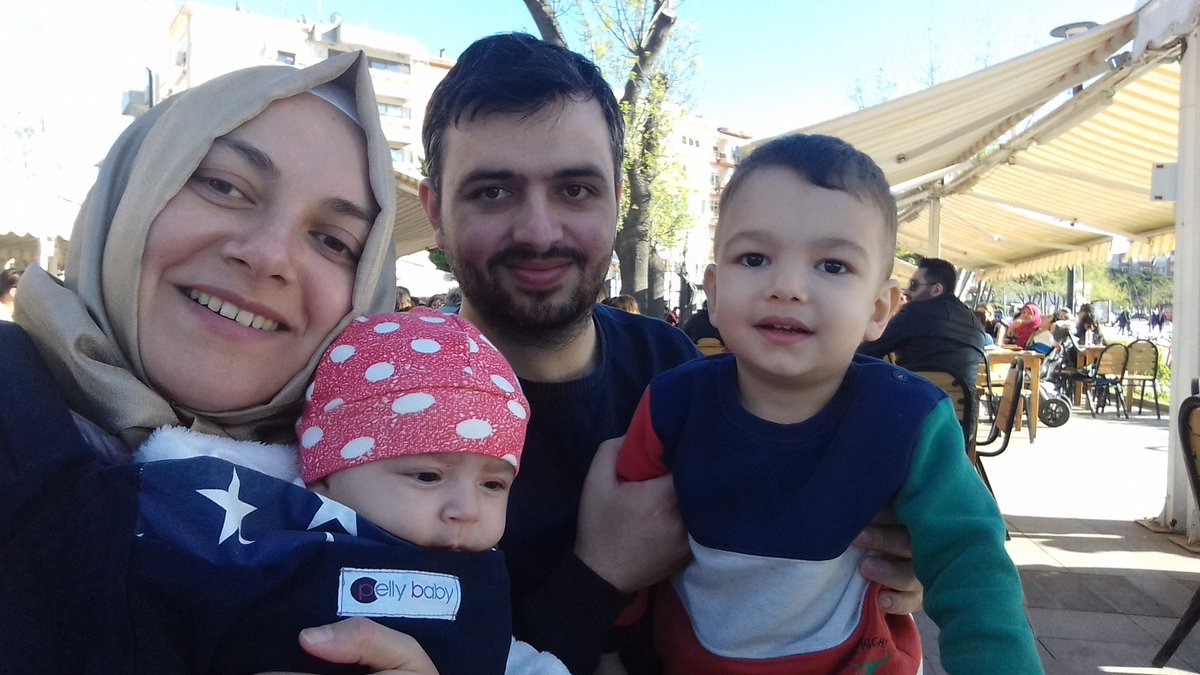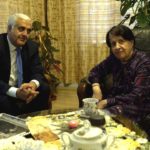Gülfem Yeni, whose husband and two children died two years ago in the Aegean Sea while fleeing oppression in Turkey, was detained on Friday during a crackdown on the Gülen movement.
According to Bold Medya, Yeni was asked where her husband and children were during an interrogation, which led to her suffering an emotional breakdown. During the search of her home in western Çanakkale province, Yeni screamed and cried for the authorities to stop harassing her.
Ege’de eşi ve 2 çocuğu gözleri önünde boğulan Gülfem Yeni’nin acısı daha çok taze…
Dün akşam tekrar gözaltına alındı
Eşini çocuklarını kaybetmiş bir anneden ne istiyorsunuz?
Rahat bırakın artık @adalet_bakanlik#pazartesi
pic.twitter.com/xkug9QtEdZ— Tutuklu Hastalar? (@HastaTutuklular) May 24, 2021
Turkish President Recep Tayyip Erdoğan has been targeting followers of the Gülen movement since the corruption investigations of December 17-25, 2013, which implicated then-Prime Minister Erdoğan, his family members and his inner circle.
Dismissing the investigations as a Gülenist coup and conspiracy against his government, Erdoğan designated the movement as a terrorist organization and began to target its members. Erdoğan intensified the crackdown on the movement following a coup attempt on July 15, 2016 that he accused Gülen of masterminding. Gülen and the movement strongly deny involvement in the abortive putsch or any terrorist activity.
Yeni was one of 84 people who were detained by the police in operations across 14 provinces for allegedly spreading the coronavirus, providing financial support to the families of people who are behind bars on alleged Gülen links and suspicious communication with each other on the Internet and through online games. The detentions took place as part of an investigation overseen by the Çanakkale Chief Public Prosecutor’s Office.
Gülen Yapılanması’na “Covid’i Türkiye geneline yaymaya çalışma” iddiasıyla Çanakkale merkezli operasyon: 84 kişi gözaltında https://t.co/MU9VQsvcv9 pic.twitter.com/qQn8kkeA9O
— BBC News Türkçe (@bbcturkce) May 21, 2021
Yeni, her 8-month-old daughter Nurbanu, 2-year-old son Burhan and husband Gökhan, 31, were on their way to the Greek island of Lesbos when their boat capsized in the middle of the sea.
Seven people among the 16 on board died, and the survivors were brought back to Turkey by the coast guard.
After the incident, the remains of Yeni’s family members were brought to a morgue in northwestern Bursa province. Mayor Alinur Aktaş did not allow the use of a hearse during the transportation of the bodies for burial.
Yeni was charged with links to the movement after the death of her family. She was sentenced to six years, 10 months in prison due to witness testimony and for using ByLock, an encrypted messaging app used on smartphones and was available on Apple’s App Store and Google Play. Turkish authorities claim that ByLock was a communication tool exclusively used by members of the Gülen movement, a faith based group inspired by Turkish cleric Fethullah Gülen, to ensure the privacy of their conversations.
The UN Human Rights Council’s Working Group on Arbitrary Detention (WGAD) has repeatedly stated that arrest and conviction based on ByLock use in Turkey violated Articles 19, 21 and 22 of the International Covenant on Civil and Political Rights.
According to a statement from Interior Minister Süleyman Soylu on February 20, a total of 622,646 people have been the subject of investigation and 301,932 have been detained, while 96,000 others have been jailed due to alleged links to the Gülen movement since the failed coup. The minister said there are currently 25,467 people in Turkey’s prisons who were jailed on alleged links to the Gülen movement.
Thousands of people fled Turkey due to a massive witch-hunt carried out by the Turkish government since the coup attempt. Many have tried to flee illegally as the government had canceled the passports of thousands of people.
A total of 15,834 Turkish nationals sought international protection in EU member states, Norway and Switzerland in 2020, according to an analysis released by the European Asylum Support Office (EASO).
Source: Stockholm Center for Freedom (SCF)



